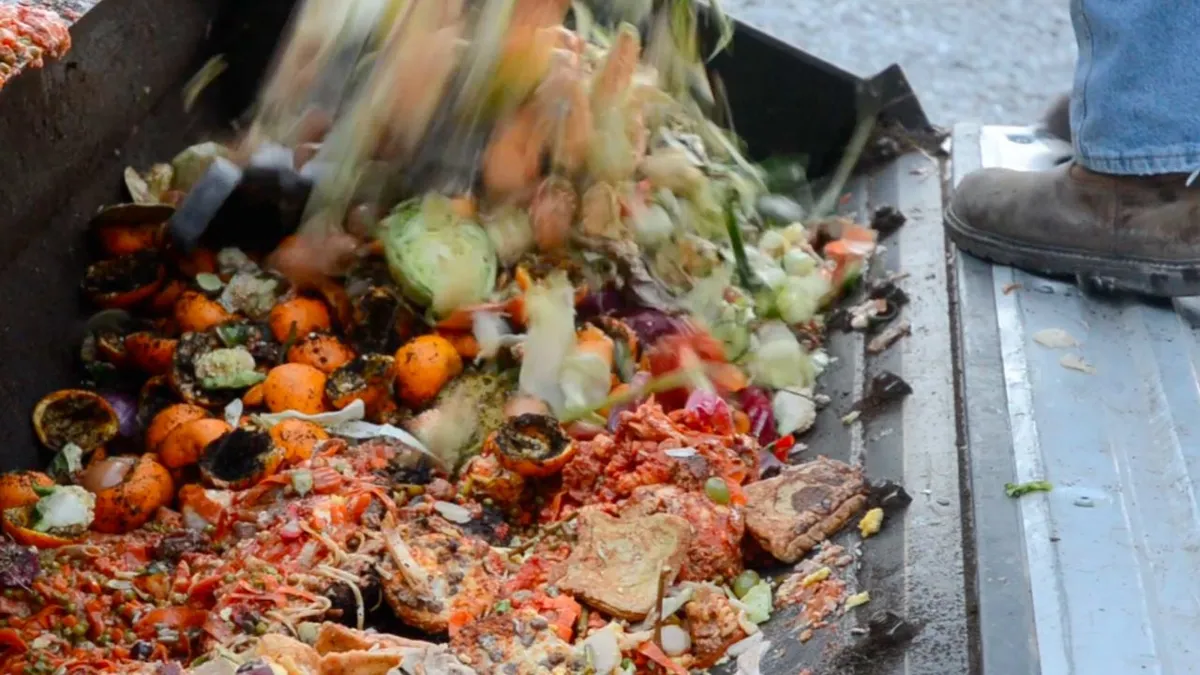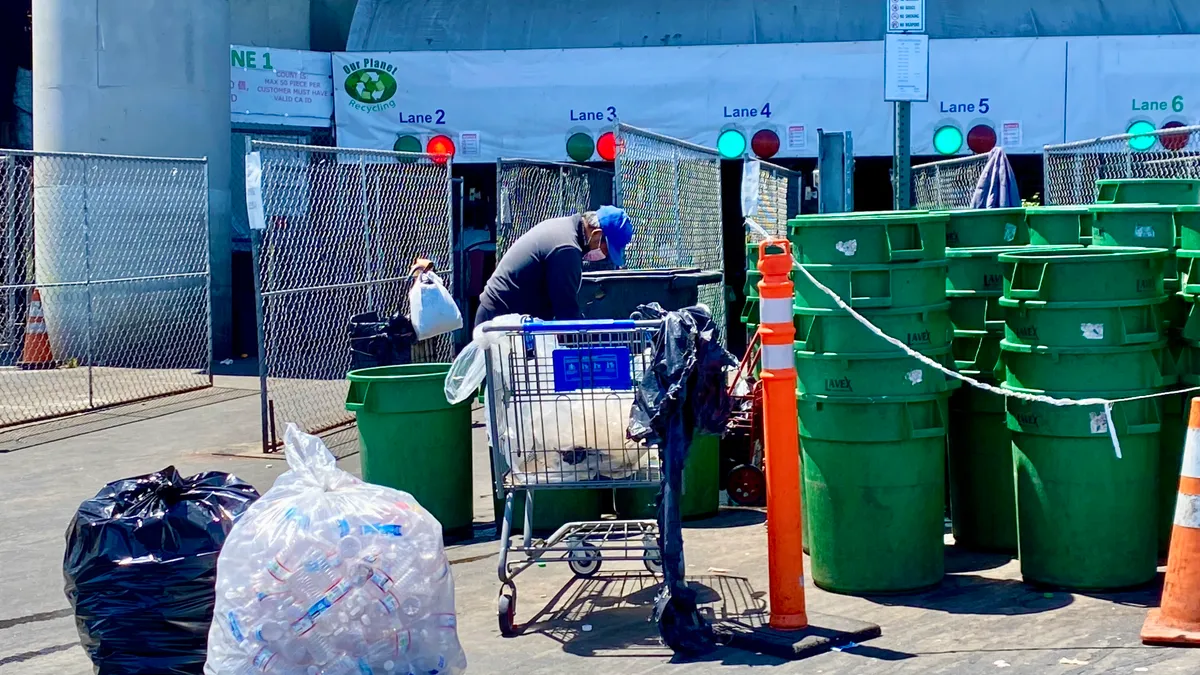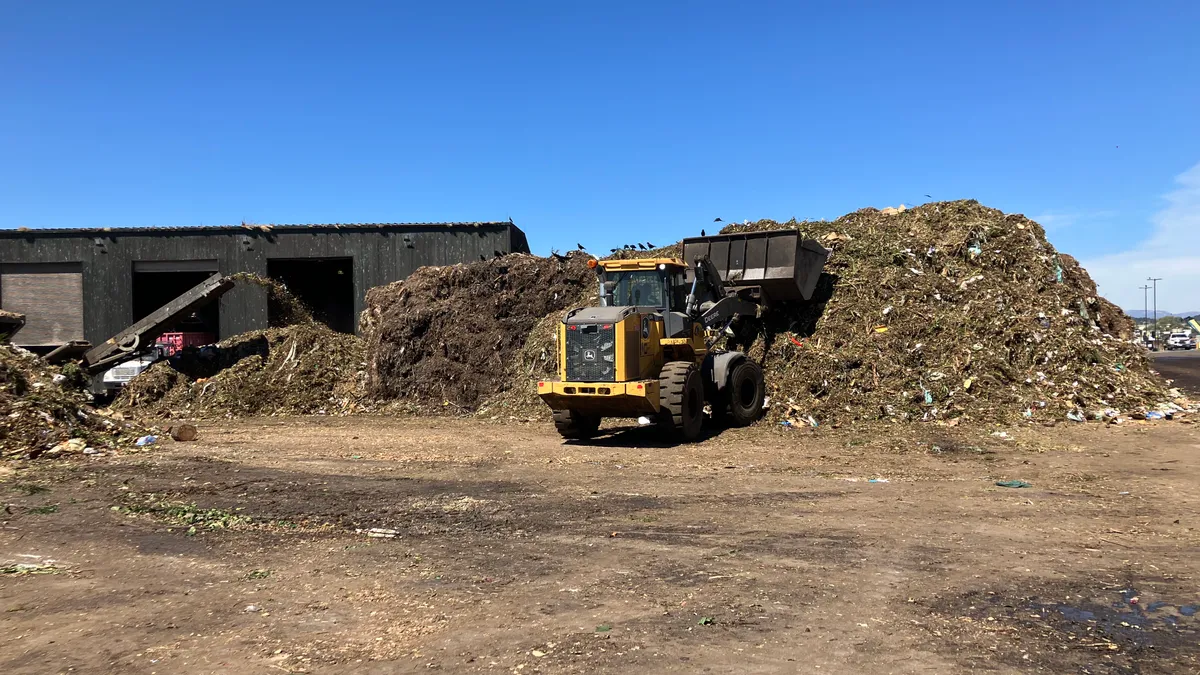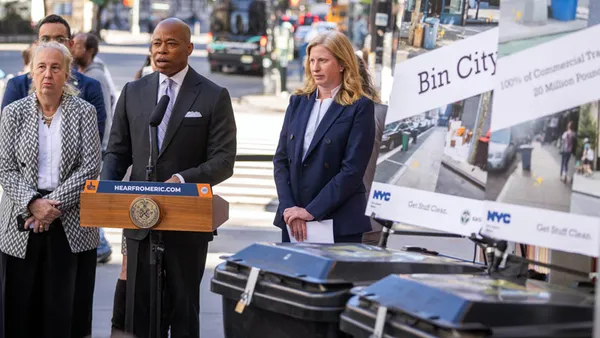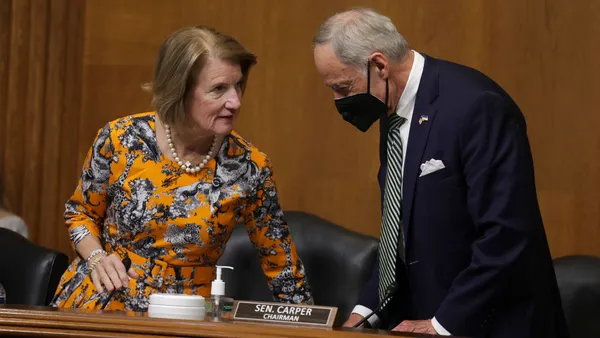Dive Brief:
- As organic waste reduction becomes a national priority, the industry has been learning how to best engage residents and businesses in collection programs. While local infrastructure factors differ, participants from multiple New England states at the Northeast Recycling Council's fall conference on Nov. 2 all agreed that curbside recycling should not be a model for these new programs.
- Being up front about the additional cost of organics program was a clear theme. “We don’t need to repeat the mistakes that recycling made. We don’t need to pretend that this is free," said Abbie Webb, sustainability manager for Casella Resource Solutions. Andrew Brooks, president of Boston-based Bootstrap Compost, had similar views for residential collections, noting that it's a lifestyle choice.
- Getting people to understand the value of these services may require a shift in education and marketing as well. Michele Morris, assistant waste reduction manager for the Chittenden Solid Waste District in Vermont, doesn't even like to call it recycling. "The general public does not get the nuances. They see recycling as anything you put in the blue bin," she said. “Recycling is one thing, composting is another."
Dive Insight:
As highlighted by groups such as ReFED, upstream source reduction solutions offer some of the biggest potential when it comes to reducing organic waste on a national scale. Yet downstream collection and processing programs will be a key component. Some of the industry's largest companies have also made it clear that this will not come cheap and large cities such as New York have experienced growing pains while setting up their own programs.
While organics collection programs have existed in West Coast cities for years, the concentration of legislative requirements in the Northeast has created an interesting testing ground for engagement strategies. Massachusetts, Connecticut, Vermont and Rhode Island all have some form of organic waste diversion mandate and others in the region also have active local programs. Some cities such as Portland, ME have seen growing interest in organics collection due to pay-as-you-throw systems, while residents in areas that fund waste services through taxes may not be as receptive to paying for additional services.
Finding ways to explain that residents should reduce the amount of organic waste they produce, carefully separate what they have left, and be willing to pay for the service will not be easy. National education campaigns are underway and tailored local strategies look promising. Yet the fact that studies have found a level of apathy around the issue of organic waste and standard recycling behavior still isn't widespread means that teaching people about why they should care will be a long process.



